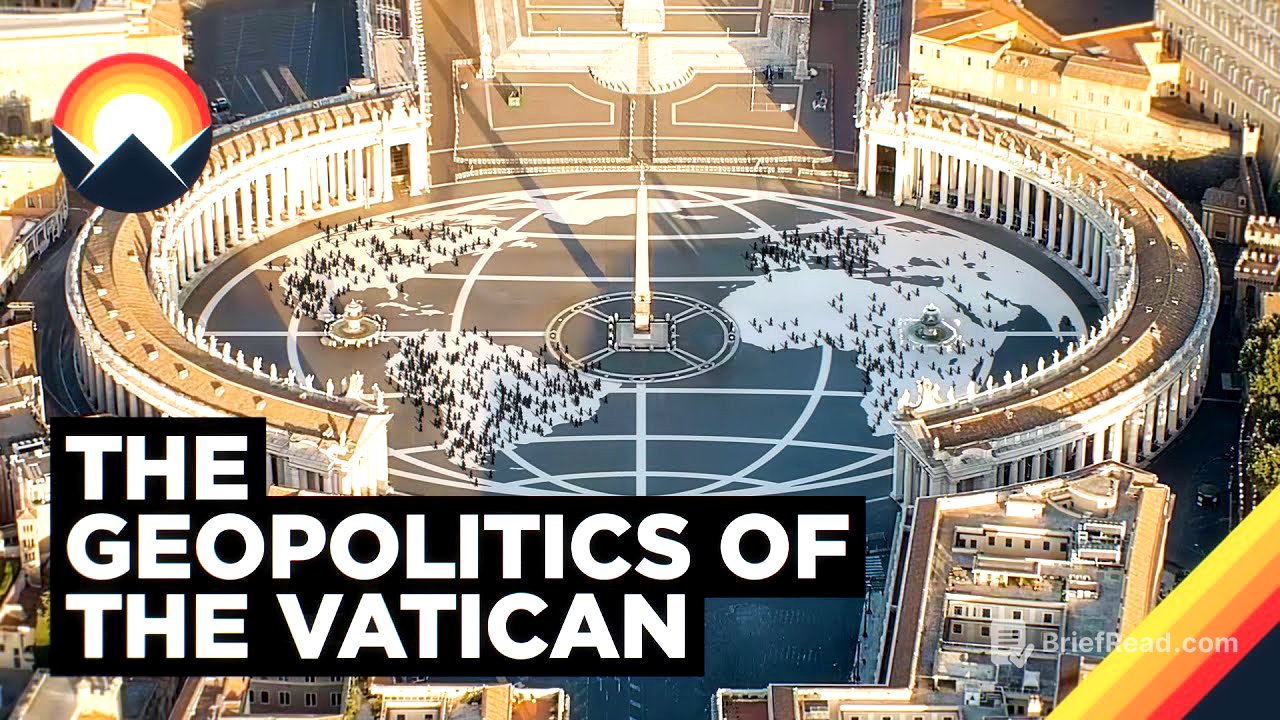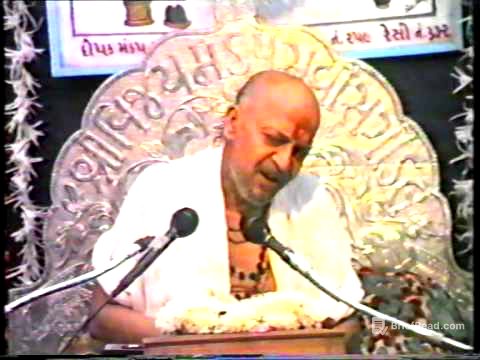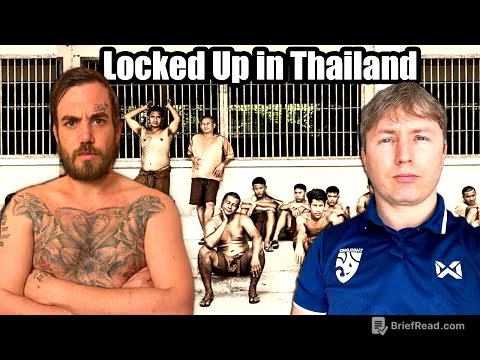TLDR;
This video explores the unique case of the Vatican City, a sovereign state that defies traditional notions of statehood. Despite lacking a permanent population, a real economy, or a distinct cultural identity, the Vatican enjoys near-universal recognition as a sovereign state. The video then delves into the Vatican's unique diplomatic role, particularly its status as a non-member observer state at the United Nations. The video highlights the Vatican's soft power influence, particularly in mediating international conflicts and advocating for religious minorities.
- The Vatican City is a sovereign state with near-universal recognition despite lacking traditional characteristics of statehood.
- The Vatican's unique diplomatic role stems from its status as a non-member observer state at the UN, allowing it to influence international policy through moral authority and soft power.
The Vatican: A Sovereign State Without a Nation [0:00]
The video begins by discussing the concept of statehood and how the Vatican City stands out as an anomaly. Despite lacking a permanent population, a real economy, or a distinct cultural identity, the Vatican enjoys near-universal recognition as a sovereign state. This is attributed to its historical legacy as the seat of the Catholic Church and its unique diplomatic role.
The Vatican's Diplomatic Role [2:21]
The video then explores the Vatican's unique diplomatic role, particularly its status as a non-member observer state at the United Nations. The Vatican's observer status allows it to participate in UN proceedings, comment on issues, and maintain seats at the General Assembly, but it cannot vote. This neutrality is a result of the Lateran Treaty, which established the Vatican City as a sovereign state and ensured its representative would not take sides in international conflicts.
The Vatican's Soft Power [11:10]
The video highlights the Vatican's soft power influence, particularly in mediating international conflicts and advocating for religious minorities. The Vatican's moral authority and its ability to speak out on issues like human cloning and religious freedom have given it a unique platform to influence global affairs. The video cites examples of the Vatican's role in mediating the Cuban thaw and advocating for Christian minorities in Muslim-majority countries.
The Vatican's Limitations [17:50]
The video concludes by acknowledging the limitations of the Vatican's soft power. While it can speak out on issues, it lacks the traditional hard power tools of other states, such as economic sanctions or military force. The Vatican's influence is largely based on its moral authority and its ability to build consensus on issues that are broadly considered to be morally just.









